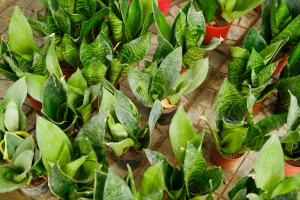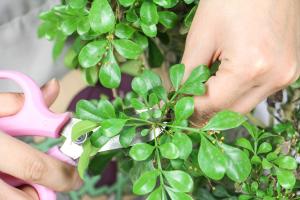Is the money tree plant poisonous to cats?
The money tree plant, also known as Pachira aquatica, is a popular houseplant that is believed to bring good luck, prosperity, and fortune to its owner. However, if you are a cat owner, you may wonder if this plant is safe for your furry friend. In this article, we will explore whether the money tree plant is poisonous to cats and what you can do to keep your cat safe.
What is the money tree plant?
The money tree plant is a tropical plant that belongs to the Bombacaceae family. It is native to Central and South America and can grow up to 60 feet tall in the wild. The plant has a braided trunk and distinctive leaves that resemble a hand with five fingers. The leaves can be either solid green or variegated with yellow or cream stripes. The plant is low maintenance and can thrive indoors with low to medium light and occasional watering.
Is the money tree plant poisonous to cats?
The money tree plant is not listed as toxic to cats by the American Society for the Prevention of Cruelty to Animals (ASPCA). However, some cats may experience mild digestive upset if they ingest the plant. This may include vomiting, diarrhea, and loss of appetite. If you suspect your cat has eaten any part of the money tree plant, it is best to monitor them for any signs of illness and contact your veterinarian if necessary.
How to keep your cat safe around the money tree plant?
While the money tree plant may not be toxic to cats, it is still essential to take precautions to keep your furry friend safe. Here are some tips:
Place the plant in a location that is out of reach of your cat. Cats are curious creatures and may try to explore the plant if it is within their reach. Place the plant on a high shelf, table, or in a room that your cat does not have access to.
Supervise your cat around the plant. If you cannot keep the plant out of reach, make sure to monitor your cat when they are in the same room as the plant. Discourage them from chewing or playing with the plant.
Provide your cat with alternative sources of entertainment. Cats may be drawn to plants out of boredom or a lack of stimulation. Provide your cat with toys, scratching posts, and interactive playtime to keep them occupied and away from the plant.
Conclusion
Although the money tree plant is not poisonous to cats, it is important to take precautions to keep your cat safe. Place the plant in a location that is out of reach, supervise your cat around the plant, and provide alternative sources of entertainment. By following these simple tips, you can enjoy the beauty and good fortune of the money tree plant without worrying about your cat's safety.

 how many times do yo...
how many times do yo... how many planted tre...
how many planted tre... how many pine trees ...
how many pine trees ... how many pecan trees...
how many pecan trees... how many plants comp...
how many plants comp... how many plants can ...
how many plants can ... how many plants and ...
how many plants and ... how many pepper plan...
how many pepper plan...































